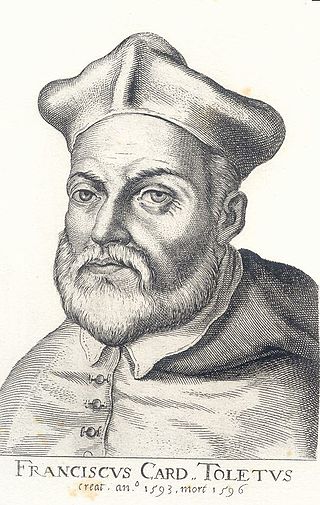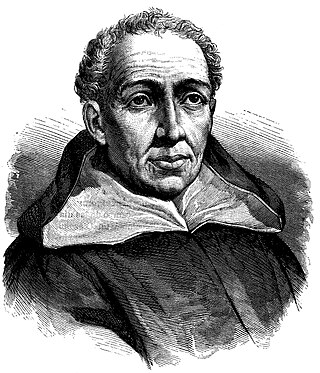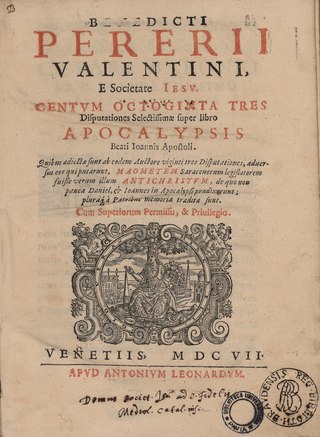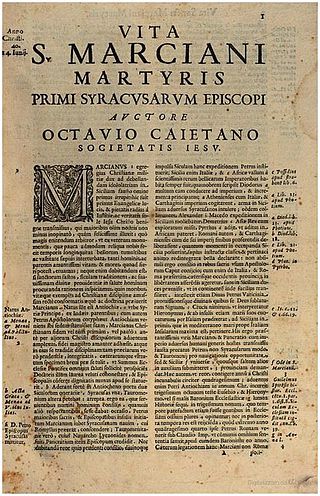
Leo Allatius was a Greek scholar, theologian, and keeper of the Vatican library.

Francisco de Toledo was a Spanish Jesuit priest and theologian, Biblical exegete and professor at the Roman College. He is the first Jesuit to have been made a cardinal.
Philippe Alegambe was a Belgian Jesuit priest and bibliographer.
Sylvester Maurus was an Italian Jesuit theologian.

Gabriel Vásquez, known as Bellomontanus, was a Spanish Jesuit theologian and scholastic philosopher. Vásquez was the foremost academic rival of his fellow Jesuit Francisco Suárez, whose philosophical views he often and openly criticized. Suárez's treatment of the jus gentium, like his treatment of natural law, was partly directed at combatting the arguments of Vásquez.

John de Pineda was a Spanish Jesuit theologian and exegete. He was a consultor to the Spanish Inquisition and nineteen printed works and six manuscripts of his writing are in existence.
Christopher Holywood was an Irish Jesuit of the Counter Reformation. The origin of the Nag's Head Fable has been traced to him.

Domingo Báñez was a Spanish Dominican and Scholastic theologian. The qualifying Mondragonensis sometimes attached to his name seems to refer to the birthplace of his father, Juan Báñez, at Mondragón in Guipúzcoa.

Tomás de Lemos (Thomas) was a Spanish Dominican theologian and controversialist.
Juan Martínez de Ripalda was a Spanish Jesuit theologian.

Benedict Pereira was a Spanish Jesuit philosopher, theologian, and exegete.

Juan Cardenas was a Spanish Jesuit moral theologian and author. He entered the Society of Jesus at the age of fourteen, and during many years held in it the office of rector, master of novices, and provincial.
Tobias Lohner was an Austrian Jesuit theologian.
Peter Wadding was an Irish Jesuit theologian.
Jacques Malbrancq or Malbrancque, also known as Jacobus Malbrancq or Jacobi Malbrancq, Father, Audomarensis, e Societate Jesu, was a Jesuit priest in the Southern Netherlands, professor and preacher at Saint-Omer Jesuit college. He is known for his extensive work on the Morini, a gallic tribe.
Jean Pepermans, sometimes Latinized Joannes Pepermannus was a 17th-century printer and bookseller, official printer to the city of Brussels. Very little is known about his life, but he published works by or about some of the leading figures at the Brussels court.
Louis Richeome (1544–1625) was a French Jesuit theologian and controversialist. He also wrote under the pseudonyms "Ludovicus de Beaumanoir", "Felix de la Grace", and "Franciscus Montanus".
Diego Álvarez was a Spanish theologian who opposed Molinism. He was archbishop of Trani from 1607 to his death.

Ottavio Gaetani was an Italian Jesuit and historian, writing exclusively in Latin and most notable for his Vitae Sanctorum Siculorum. He is held to be the founder of hagiography in his native Sicily and one of the island's main 16th-century and early 17th-century historians.
Pietro Paolo Bombino was an Italian Jesuit, orator, theologian and historian. Bombino was the first biographer of Edmund Campion.








